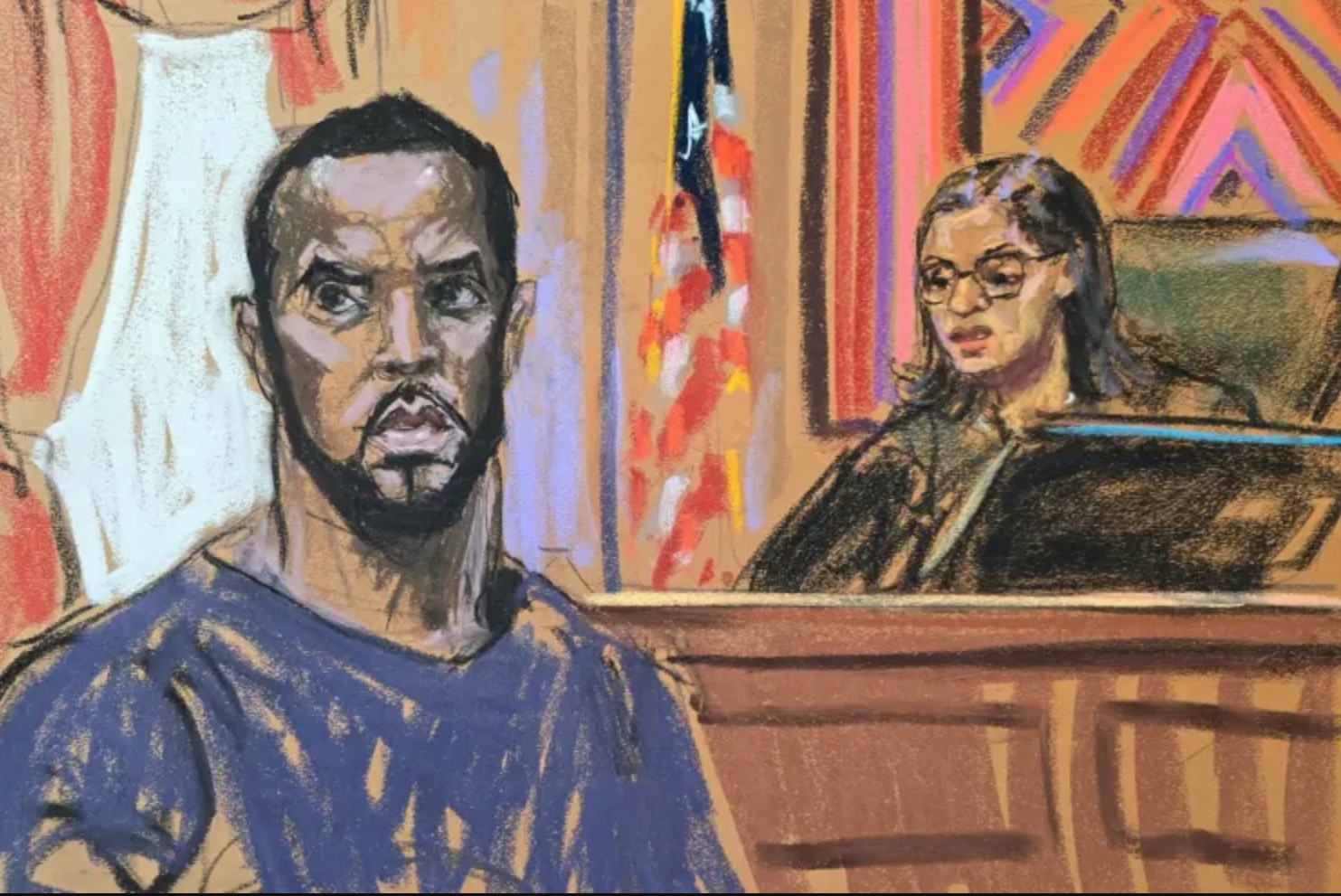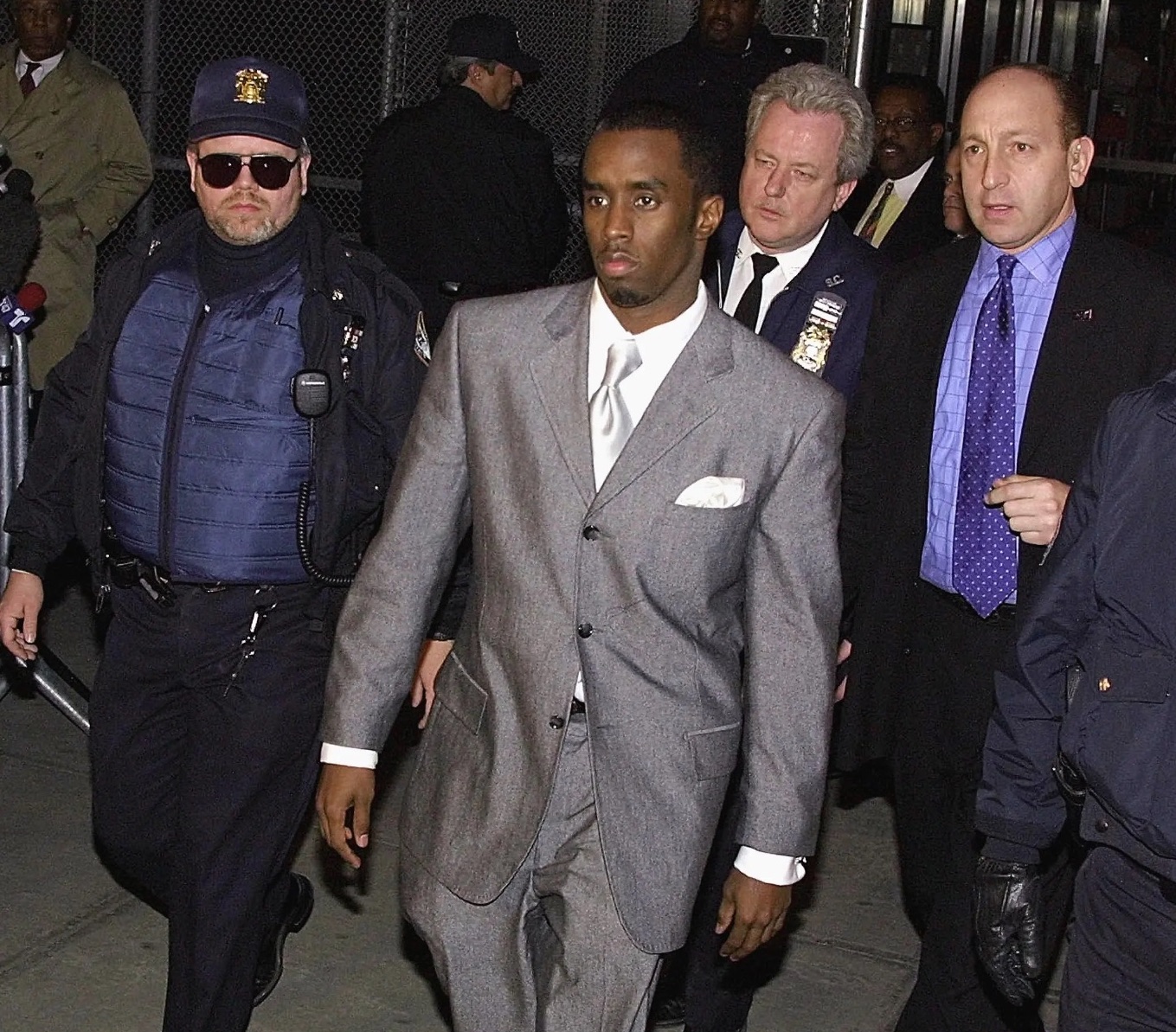Diddy’s Demise: Violence Against Women and Hip-Hop’s Code of Silence

Trigger Warning: This article will discuss the details of physical and sexual violence against women.
Grammy-winning hip-hop mogul Sean “Diddy” Combs was arrested on Monday, Sept. 16, in New York City, following a federal jury’s indictment from the Southern District of New York for charges of racketeering, sex trafficking and transportation to engage in prostitution.
In November 2023, former girlfriend Cassie Ventura, an R&B singer once signed to Combs’ music label, Bad Boy Records, had filed a lawsuit against Combs. In the documentation, Ventura accuses the mogul of using his status to infiltrate her life professionally and personally to cultivate a cycle of abuse and coercion.
Ventura claims she was forced to perform sexual acts with countless male sex workers over the course of their relationship. Ventura says Combs referred to these staged and cinematically produced encounters as “freak-offs,” taking place in expensive hotel rooms filled with baby oil, designer drugs and bottles of lubricant. Such “parties” could sometimes last for days, requiring participants to be treated with intravenous liquids for exhaustion. Combs quickly settled with Ventura less than 24 hours after the lawsuit was filed, but this later proved to be the least of his worries.
In March 2024, his Los Angeles mansion was raided by U.S. Homeland Security to gather evidence to support the current federal investigation. In May, CNN News released exclusive hotel security footage dating back to 2016 of an irate Combs brutally assaulting Ventura in a hallway. In the video, he can be seen kicking and dragging her by the hair. And in mid-September this year, Combs was arrested at the Park Hyatt Hotel in response to the federal indictment consisting of multiple felony charges. Combs has since been denied bail twice due to concerns that he is a “flight risk” and may try to intimidate witnesses.
Reading through the 14-page-long indictment paints the gruesome picture of a man with an insatiable appetite for power through the abuse, torture and exploitation of women. The document mentions the use of mind-altering drugs, intimidation with firearms and threats to release footage of the “encounters” in order to silence victims.
Navigating allegations of violent behavior isn’t new territory for Combs, with stories of his abuse dating back to his time as a student at Howard University in the 1980s. Former classmates told Rolling Stone magazine how they witnessed a young Combs angrily beat his then girlfriend outside her dorm for all to see. Apparently he earned the nickname “Puffy” for the way he “huffed and puffed’ whenever he got angry.
In 1996, he threatened a photographer with a firearm. In 1999, Combs was brought to trial over gun possession and bribery following a shooting in a New York City nightclub. Though later acquitted, the victim, Natina Reubun, maintains her story that Combs is actually the one who shot her. In an interview with The Daily Beast she stated, “I saw him with my own eyes.” The same year, he was arrested for violently assaulting a record executive. In 2014, he punched Aubrey “Drake” Graham in the face at LIV Nightclub. In 2019, his former girlfriend Gina Hyunh did an interview with YouTuber Tasha K, sharing how Combs regularly beat her and coerced her to terminate pregnancies.
Despite Combs developing a violent reputation over the years, not much has been said by members of the hip-hop community. The same resounding silence followed after the footage of Ventura’s assault was publicized. The men previously affiliated with Combs through record label contracts, music videos, song features and party invitations have zipped lips and blind eyes as evidence continues to mount.
This isn’t the first hip-hop mogul to face allegations largely met with silence from the industry.
Rapper, producer and businessman Dr. Dre was accused of physical assault by journalist Dee Barnes in the early 1990s. In 2018, rapper and Mass Appeal Records co-founder Nasir “Nas” Jones was accused of being abusive during their marriage by his ex-wife and singer Kelis Rodgers. Russell Simmons, co-founder of Def Jam Recordings, was accused of sexual assault by seven women. In 2020, HBO released a documentary titled “On The Record” where three of the women shared their traumatic experiences with Simmons. The silence from men in the rap industry continued.
The “Power and Control” wheel developed by Duluth Minnesota’s Domestic Abuse Intervention Program shows how this “code of silence” in the hip-hop industry operates to keep people quiet.
The infographic illustrates how different components perpetuate and enable the cycle of abuse and violence through means of power and control. Portions of the wheel include intimidation, isolation, coercion, threats, emotional abuse and the use of male privilege, all of which are documented in the indictment against Combs.
Will the rap industry finally have its own day of reckoning where women who have been abused will have the support they need to be able to speak out and receive the justice they deserve? It remains unclear.
When rapper Megan Thee Stallion (Megan Pete) was shot in 2020, there was much speculation about the shooter. But when Pete proclaimed that rapper Tory Lanez is actually who pulled the trigger, striking her foot, she was almost immediately met with disbelief and backlash.
The Los Angeles Superior Court announced formal charges against Lanez, leading to his conviction in 2022. Lanez was found guilty on all three felony counts which included assault with a semi-automatic weapon, and sentenced to 10 years in prison.
Pete’s best friend, Kelsey Harris, was present at the time of the shooting, but later contributed to swirling narratives that Lanez wasn’t, in fact, the gunman. During the trial Harris maintained that she “didn’t remember” much about the incident, vowing to uphold the industry’s “code of silence,” by sacrificing a longtime friend in the process.
Pete was further ridiculed by popular names in the industry. Rapper 50 Cent (Curtis James Jackson) posted a meme on his Instagram account, joking about the incident. Drake took jabs at her on his “Circo Loco” song with lyrics that overtly claim she lied about her assault. “This b*tch lie about gettin’ shot, but she still a stallion.”
Nicki Minaj also called Pete a liar in her response diss track aimed at the rapper titled “Big Foot.” Minaj’s lyrics state, “You was lying to the queen, then you went lying to the King, Gayle,” which references the interview Pete did with journalist Gayle King about the shooting.
If Megan Thee Stallion was swiftly reprimanded by hip-hop for breaking its “code of silence,” how likely are other women to name powerful men in the industry as their abusers? If the lack of support Ventura, Pete, Barnes, Rogers, and alleged victims of Simmons, sets the precedent, what does that mean for the safety and security of women not only in the hip hop industry but society at large?
What about the alleged victims of Kodak Black, Lil Uzi Vert, Soulja Boy, NBA Youngboy, Playboi Carti, G Herbo, Tekashi 6ix9ine, Drake, Blueface, Trey Songz, Nelly and more?
Silence acts as a currency of protection that binds abusive men together in loyalty, and as long as those with the power and influence remain silent, the cycle of abuse is a wheel that will keep on turning.


